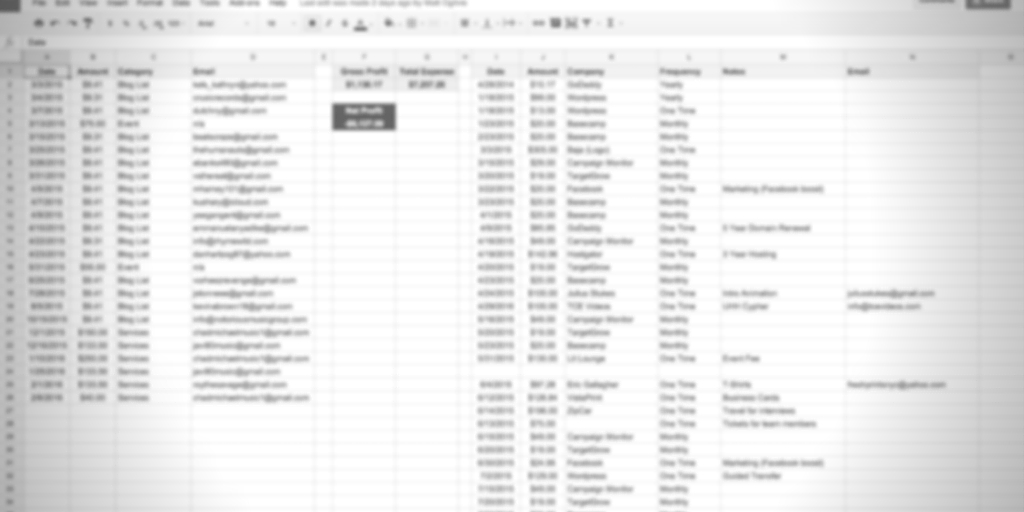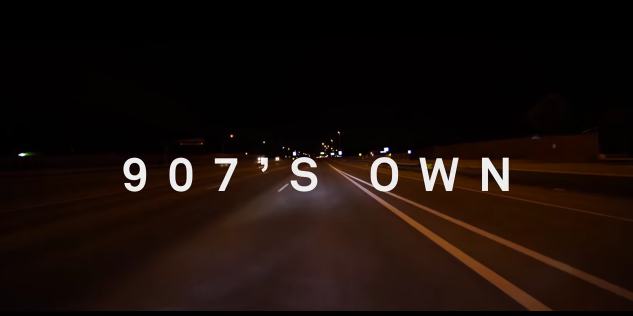Guest Post by Mertz @MertzMusic
As independent artists we all want to achieve ‘success’. The problem, though, is that this rather general term can mean a myriad of different things to different people. It’s important to define what ‘success’ means to you before attempting to attain it. Once you know what you’re after, it’s a lot easier to devise a plan that will lead you to it.
Most of us - at least in part - equate ‘success’ with generating income through our art. Whether we want to quit our day jobs & become full-time artists, or we just want to be compensated for our time & energy, generating income allows us to invest our time & resources into our art much more reliably.
To that end - one of the most important (& difficult) things an independent artist can do is treat their art like a business. As an artist myself, I know this can be a daunting task, but if your goal is to generate income through your art, this step is paramount.
One thing that all successful businesses have in common is they carefully document their investments & earnings. This is no coincidence. Keeping accurate & detailed records is something that enables businesses to achieve financial success by allowing them to see where their money is coming from & going. In moving forward, businesses utilize their records to reflect on which endeavors were ultimately 'worth it' & which endeavors should be avoided in the future. This is an incredibly valuable resource to a growing business.
For musicians it’s no different - record keeping isn’t something you should do once you achieve financial success - it’s a tool that will enable you to achieve it. Record keeping has led me to be much more business-minded in my artistic endeavors & has empowered me to measure my progress objectively - as opposed to relying on subjective values like my feelings about experiences & my memory of those experiences.
With that in mind, here are four types of records I recommend you start keeping if you aim to generate income through your music. All of these can be made in a simple Word or Excel document & will go a long way in keeping you organized & professional.
Monthly Reports
I recommend keeping one for each month of the year & including these four sections - Income, Expenses, Net +/-, & Year-to-Date Totals.
Every time you generate income through your music, make an entry in the Income section. Similarly, every time you spend money on your music, make an entry in the Expenses section. Document the date, amount, & a short description for each entry. For your short description, group your entries into categories of income or expenses, as well as put a short description of what you purchased or sold & who you purchased it from or sold it to. Keep your descriptions brief & clear so that even someone with minimal information about your business would be able to figure out what each entry means. This will help you stay organized & will easily translate later when setting up your Yearly Breakdown Reports.
In your Net+/- section, subtract your total expenses from your total income for that month. A Net+/- value clearly illustrates if you have made or spent more money in a given month & can help you budget your investments more appropriately around your income.
The Year-to-Date Totals section lets you keep an ongoing total of your year up to the current month. Enter your total Income, Expenses & Net+/- for each month & calculate grand totals for each of those categories. If you are the kind of artist that makes goals for the year, this section offers excellent insight on whether or not you are on track to meet your goals.
Yearly Breakdown Reports
This is actually a collection of two detailed reports; one that breaks down your total income into categories, & one that breaks down your total expenses into categories. This information allows you to see what percent of your total yearly income each of your revenue streams is contributing. In terms of expenses, it also allows you to see what percentage of your total yearly expenses is going towards each expense category. Also, breaking your expenses into categories is necessary in order to claim tax-deductions on your tax return.
Income categories should include every way you earn money through your music - Performance Compensation, Merchandise Sales, Royalty Payments, Production Sales, Mixing/Mastering Services, etc.
Expense categories should include every way you spend money on your music- Promotion, Sales Fees (like Paypal & Square Register), Travel, Food, Booking Agent, Manager, Shipping, Merchandise Manufacturing, Equipment, Education, etc.
Mileage Report
Keeping track of your mileage is beneficial because it can get you more money back on your tax return. It can also give you a more accurate sense of how much you are spending to travel for business purposes. Keep track of every mile you drive specifically for your music including to shows, studios, photo/video shoots, networking events, etc. I recommend making a new entry for each separate trip & including the date, origin location, destination, purpose & distance. Set up your document to add all your entries together & calculate a total so you know how many miles you have driven throughout the entire year.
Show Reports
Every time I play a show I collect a wealth of information including - travel expenses, mileage, compensation, merchandise sales, emails collected, attendance, other acts, booking contact, set list, notes for improvements, a subjective rating of the show on a scale of 1-10 & more.
These reports help me reflect on which shows were actually ‘worth it’ & which opportunities should be avoided in the future. One particularly useful benefit of keeping these records is that I am able to negotiate for more money when playing in a city that I added 30+ subscribers to my email list the last time I played there. It also helps me calculate how much it will cost me in travel expenses to get to a city I have played in in the past.


![[Interview] 60 East Talks Idols, Favorite Albums, 2015, and More](http://upcominghiphop.net/wp-content/uploads/2016/02/b3b127a4-643f-4e58-b0f2-17a91cfe877c.jpg)
![[Audio] "Warhols" - TruthCity](http://upcominghiphop.net/wp-content/uploads/2016/02/Screen-Shot-2016-02-09-at-5.24.20-PM.png)








